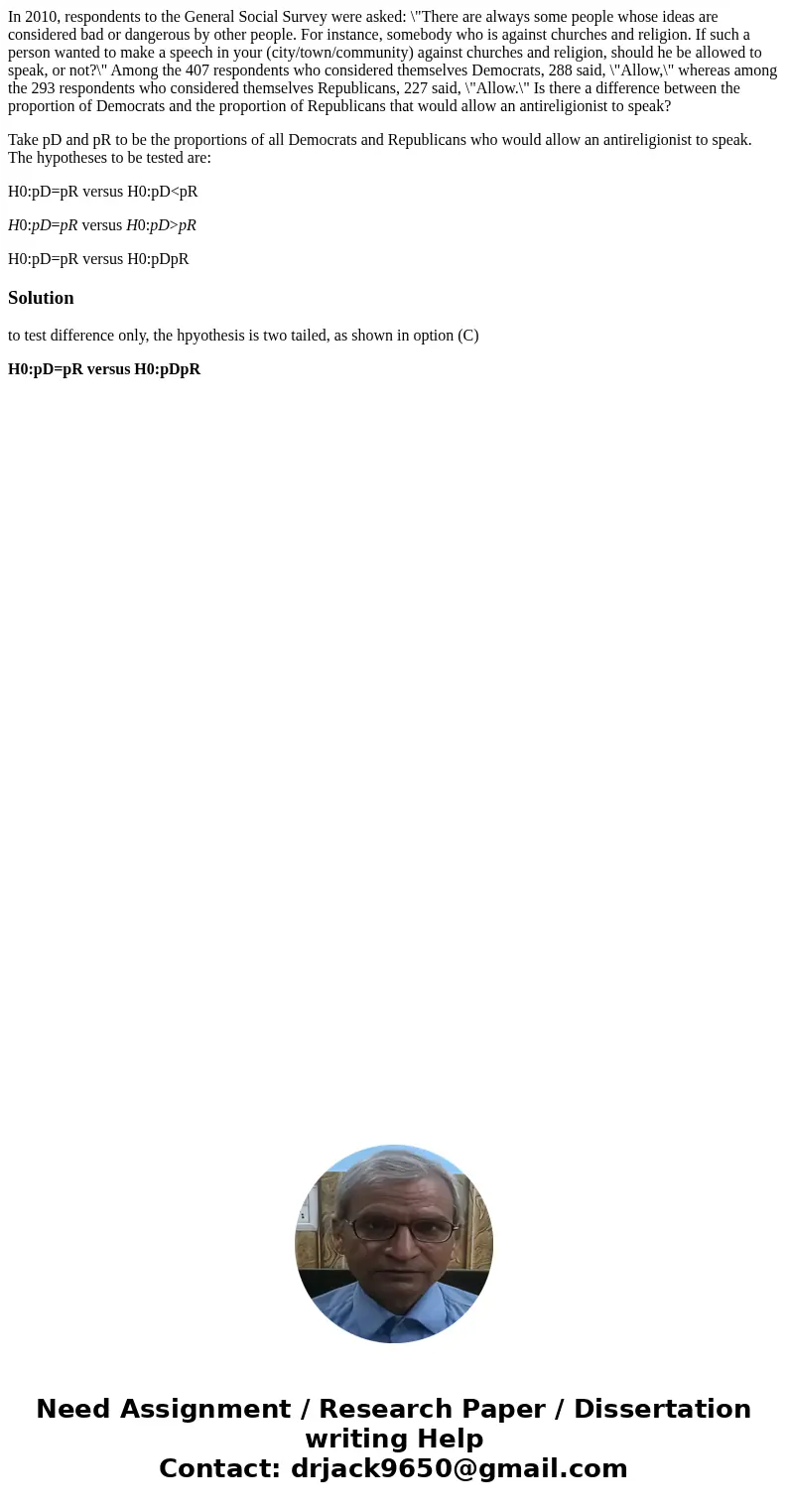In 2010 respondents to the General Social Survey were asked
In 2010, respondents to the General Social Survey were asked: \"There are always some people whose ideas are considered bad or dangerous by other people. For instance, somebody who is against churches and religion. If such a person wanted to make a speech in your (city/town/community) against churches and religion, should he be allowed to speak, or not?\" Among the 407 respondents who considered themselves Democrats, 288 said, \"Allow,\" whereas among the 293 respondents who considered themselves Republicans, 227 said, \"Allow.\" Is there a difference between the proportion of Democrats and the proportion of Republicans that would allow an antireligionist to speak?
Take pD and pR to be the proportions of all Democrats and Republicans who would allow an antireligionist to speak. The hypotheses to be tested are:
H0:pD=pR versus H0:pD<pR
H0:pD=pR versus H0:pD>pR
H0:pD=pR versus H0:pDpR
Solution
to test difference only, the hpyothesis is two tailed, as shown in option (C)
H0:pD=pR versus H0:pDpR

 Homework Sourse
Homework Sourse